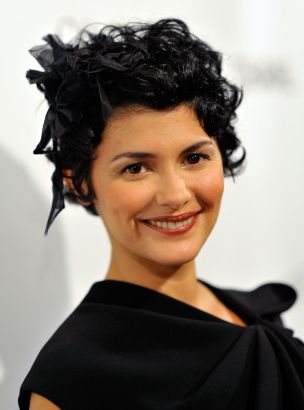Earning effusive comparisons to another Audrey

Earning effusive comparisons to another Audrey, sylph-like French actress Audrey Tautou became an international star with her performance as the eponymous do-gooder in Jean-Pierre Jeunet's romantic fable Amélie (2001).
Born in Beaumont, France, Tautou's childhood interest in monkeys led to plans to become a primatologist, but she found her true calling when she began to study acting in school. After graduation, Tautou found roles on French TV, and earned Canal+'s prize in 1999 for Best Newcomer. Moving to films, Tautou quickly made a mark with her performance as Natalie Baye's young co-worker in Venus Beauty Institute (1999) and earned the César for Best New Actress.
While Tautou worked steadily, playing a supporting role in the ribald Denis Diderot biopic Le Libertin (2000) and leads in Voyous Voyelle (2000) and Happenstance (2000), her appearance in Venus Beauty Institute proved to be even more pivotal beyond her César. After original choice Emily Watson bowed out, Jeunet was disconsolate about finding the right Amélie until he saw Tautou on the Venus Beauty Institute poster. Perfectly merging Tautou's elfin mien with the title character's impish ruses for bringing happiness to everyone around her, Amélie became a record-breaking sensation in France, with Tautou hailed as the heiress to Audrey Hepburn's inimitable charm. An art house success in America, Amélie garnered more praise for Tautou and a berth as one of Entertainment Weekly's Entertainers of the Year.
While she attempted to heed Jeunet's negative experience with Alien Resurrection (1997) and refused for years to cash in with a Hollywood blockbuster, the shakily bilingual Tautou subsequently took on her first English-language role in Stephen Frears' acclaimed thriller Dirty Pretty Things (2002) and finally succumbed to the lure of La-La-Land in 2006 when she starred opposite Tom Hanks in Ron Howard's hotly anticipated The DaVinci Code.
评论
发表评论